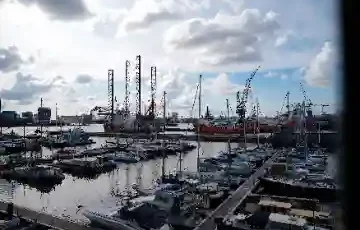
You can file an objection against a Dutch regulatory authority penalty within six weeks of the penalty decision’s dispatch. If your objection is rejected, appeal to the administrative court remains available. During investigations, you can also invoke your right to silence and engage specialized administrative law counsel for legal protection.
Dutch regulatory authorities including the NVWA (Netherlands Food and Consumer Product Safety Authority), Labour Inspectorate (Inspectie SZW), AFM (Authority for the Financial Markets), DNB (Dutch Central Bank), and ILT (Human Environment and Transport Inspectorate) actively enforce legislation through inspections and sanctions. Administrative penalties constitute punitive sanctions that can cause significant financial and reputational damage. Recent research indicates approximately 27% of all enforcement investigations result in imposed sanctions. Companies receive penalties when regulatory authorities identify regulatory violations, triggering a structured procedure with multiple intervention opportunities.
How Does the Penalty Procedure Work Under Dutch Law?
The Dutch regulatory authority procedure begins with violation identification during an inspection. Inspectors subsequently prepare a penalty report documenting identified violations and collected evidence. This report often includes employee statements and forms the foundation for further decision-making.
The penalty report is forwarded to the inspection service, however you possess inspection rights. Therefore, review this document meticulously with your lawyer for factual inaccuracies, as the document substantiates the sanction. Consequently, it warrants thorough analysis before responding.
Regulatory authorities do not independently determine penalty amounts. Penalty amounts are statutorily established or follow guidelines with standard amounts. After report assessment, you receive written notification of the intention to impose a penalty. You have two weeks to submit a written statement of views—a crucial moment to present your position.
What Deadlines Apply for Response and Payment According to Dutch Legislation?
You have two weeks after receiving the intention notice to respond in writing or orally. Following assessment of your statement of views, the definitive penalty decision follows within several weeks. Subsequently, the Central Judicial Collection Agency (CJIB) sends an acceptance giro for payment.
What Rights Do You Have During Investigations in the Netherlands?
During regulatory authority investigations, you possess important legal protection mechanisms. As a suspected violator, you can invoke the right to silence pursuant to Article 5:10a of the General Administrative Law Act (Awb). Regulatory authorities must warn you beforehand when questioning you regarding a punitive sanction.
You are not obligated to cooperate in your own conviction. This fundamental legal principle applies in both criminal law and administrative law. Nevertheless, a general cooperation obligation exists under Article 5:20 Awb, but this cannot extend beyond what is reasonably necessary for the investigation.
During company raids or announced inspections, immediately contacting an administrative law lawyer is advisable. This professional can:
- Advise when to strategically invoke your right to silence
- Assess which documents you must provide
- Be present during interrogations and inspections
- Prevent employees from inadvertently making incriminating statements
What Is the Difference Between Volitional and Independent Material Under Dutch Law?
The cooperation obligation is limited by the nemo tenetur principle: the right against self-incrimination. Case law distinguishes between existing material (documents, registrations) that you must provide and volitional information (statements, new analyses) where you have the right to silence.
Specialized legal assistance helps determine which material you must reasonably submit without weakening your legal position. Approximately 73% of all intentions to impose penalties ultimately result in definitive sanctions.
Do you need certainty about your position during an ongoing investigation? Our administrative law lawyers in Amsterdam analyze the regulatory authority’s powers and advise which strategy best serves your interests from initial contact with inspectors.
How Do You Prepare an Effective Statement of Views in Dutch Law?
A statement of views offers the opportunity to present your perspective before the definitive penalty decision follows. A specialized administrative law lawyer can prepare a motivated, legally substantiated statement of views that strengthens your position.
In the statement of views, you can indicate:
- Why no violation exists or why it cannot be attributed to you
- That facts were incorrectly established in the penalty report
- That special circumstances should lead to penalty mitigation
- That someone else was responsible for the identified situation
- That a warning is more appropriate given the violation’s nature
Which Factors Determine Penalty Amount in the Netherlands?
Regulatory authorities calculate penalties using established criteria:
- Scope, duration, and seriousness of the identified violation
- Degree of culpability – could you have prevented the violation?
- Financial capacity of the violator
- Recidivism – were previous warnings or sanctions issued?
- Transparency – did you cooperate during the investigation?
A transparent approach toward the regulatory authority can positively influence the penalty amount. Demonstrate that precautionary measures were implemented to prevent recurrence. Show insight into work processes and explain the penalty’s impact on your business operations.
Anonymized publication often merits preference over naming and shaming. During the statement of views, emphasize why anonymization prevents reputational damage without diminishing the regulatory authority’s enforcement objective.
What Can You Do After the Definitive Penalty Decision Under Dutch Law?
Against the penalty decision, objection remains available within six weeks of the decision’s dispatch. The objection letter must meet statutory requirements including name, address, date, and signature specification. Clearly articulate why you disagree with both the substantiation and the imposed sanction’s amount.
You have the right to a hearing at the regulatory authority. This is not mandatory, however it offers the opportunity to explain your position orally and directly answer the regulatory authority’s questions. Doing this with your lawyer is advisable to effectively convey legal arguments.
When Does the Objection Decision Follow in the Netherlands?
The regulatory authority typically decides within 12 weeks after the last day objections could be filed. If a hearing was held, you receive the report with the decision. When your lawyer filed the objection, this authorized representative receives the decision.
Is your objection rejected? Then you can file appeal with the administrative court within six weeks. Court registry fees must be paid to the court for the appeal. Your lawyer can also file a pro forma appeal to safeguard the deadline, after which grounds are supplemented.
Practice Example: Business in Amsterdam
A hospitality business in Amsterdam received a €15,000 penalty for violating labor legislation. The Labour Inspectorate established that employees structurally worked more hours than permitted. In objection, the entrepreneur argued that ongoing staff shortages made this necessary and that he actively maintained job vacancies.
The administrative court ruled that staff shortages do not constitute justification grounds, but mitigated the penalty to €8,000 due to demonstrable recruitment efforts and the company’s limited financial capacity.
Must You Pay the Penalty During Objection or Appeal in Dutch Law?
Yes, objection and appeal have no suspensive effect. You must pay the penalty within the specified deadline, even if legal proceedings are ongoing. This differs fundamentally from criminal law, where appeal does have suspensive effect.
If it later appears the penalty was wrongly imposed, you receive the amount with statutory interest back. Nevertheless, this obligation can cause liquidity problems, especially with high penalty amounts such as those imposed by DNB and AFM.
How Do You Request Suspension or Extension According to Dutch Legislation?
Your lawyer can submit a request for provisional relief to the preliminary relief judge of the administrative court. This judge can suspend the penalty decision or postpone the payment obligation when urgent interest exists and the appeal’s outcome cannot be awaited.
A weighty interest must be present. Consider:
- Threatening liquidity problems endangering business operations
- Disproportionate damage through penalty decision publication
- Evidently unlawful decision by the regulatory authority
Under certain conditions, a payment arrangement is also possible. Approximately 15% of all imposed penalties are paid through payment arrangements. However, this requires timely communication with the CJIB.
What Role Does Penalty Decision Publication Play in the Netherlands?
Regulatory authorities often have the possibility or even the obligation to publish penalty decisions publicly. DNB and AFM publish definitive decisions on their website, often including the penalized institution’s name. Sanctions are also announced via social media platforms like Twitter.
This naming and shaming aims to warn other market parties and have preventive effect. However, non-anonymized publication can lead to unnecessary reputational damage, even when the penalty decision is not yet irrevocable. This raises questions about proportionality and fairness.
Can You Prevent Publication Under Dutch Law?
If the regulatory authority does not agree with anonymization, a preliminary relief judge procedure may potentially lead to publication suspension. Emphasize that publication weighs disproportionately heavy compared to the enforcement interest. Financial institutions and accounting organizations regularly experience that publication causes more damage than the penalty itself.
Explicitly request anonymized publication in your statement of views. Argue why this has sufficient warning effect without permanently damaging your business reputation. Point out the difference between public interest in transparency and disproportionate reputational damage.
Contact our law firm in Amsterdam for personalized legal advice about preventing or limiting publication damage from regulatory authority penalty decisions.
What Special Aspects Apply to Punitive Sanctions in the Netherlands?
Administrative penalties have the character of punishment, whereby additional safeguards apply such as the right to silence and the nemo tenetur principle. Regulatory authorities can penalize different persons and entities:
- The direct violator or accomplice
- The legal entity (for example the company as legal entity)
- The de facto manager (statutory directors)
The administrative court applies the same criteria as the criminal court when assessing whether these participation forms exist. This means administrative penalty procedures show strong similarities with criminal proceedings.
What Are the Consequences of a Penalty for Directors in Dutch Law?
A penalty imposition can lead to a supervisory antecedent for directors of the penalized company. This antecedent can have consequences for future permit applications or reliability assessments. Therefore, it is important to look not only at direct consequences, but also at long-term effects on individual directors’ careers.
De facto managers can be held personally liable when they directed the prohibited conduct. However, this requires the regulatory authority to prove the director consciously accepted the violation risk.
How Does Administrative Law Relate to Criminal Law in the Netherlands?
Despite administrative penalties’ punitive character, important differences exist between administrative law and criminal law that influence your legal protection. The State Council’s Advisory Division has criticized these differences in an unsolicited opinion.
Key differences:
| Aspect | Administrative Law | Criminal Law |
|---|---|---|
| Suspensive effect appeal | No (payment mandatory) | Yes (execution suspended) |
| Court registry fees | Yes | No |
| Limitation period | Varies per statute | Longer, more protection |
| Legal assistance early stage | Limited regulation | Well regulated |
These differences are difficult to justify from a legal protection perspective. A violator deserves comparable safeguards, regardless of whether enforcement occurs via administrative law or criminal law. Unfortunately, coordination between both legal fields lags behind.
When Does Criminal Prosecution Follow According to Dutch Legislation?
In certain cases, the regulatory authority can decide to refer the violation to the Public Prosecutor. This happens with serious violations where criminal prosecution is deemed more appropriate than an administrative sanction. You then face both administrative and criminal proceedings.
What Can You Do in Case of Improper Treatment by Inspectors in the Netherlands?
When you have a complaint about inspectors’ actual conduct, disproportionately heavy enforcement, or discourteous treatment, you can file a complaint with the regulatory authority itself. Every regulatory supervisory organization has a complaints committee that assesses complaints.
The complaints committee informs you about the findings. Although a justified complaint does not automatically lead to penalty withdrawal, it can be relevant in objection or appeal proceedings. Excessive enforcement or rights violations during the investigation can influence the penalty decision’s lawfulness.
How Do You Obtain More Information About Enforcement Policy in Dutch Law?
Sometimes filing a Open Government Act (Woo) request can be useful to uncover more information about the policy behind enforcement. This can provide insight into the regulatory authority’s considerations and expose possible inconsistencies in enforcement practice.
Why Is Early Legal Assistance Crucial in the Netherlands?
Experience teaches that legal assistance at an early stage can prevent or limit problems with regulatory authorities. Proactive legal support saves time, money, and prevents reputational damage. A specialized administrative law lawyer with knowledge of punitive enforcement can:
- Advise during the investigation about cooperation obligations and right to silence
- Prepare an effective statement of views that strengthens your position
- File objections and appeals with legally substantiated arguments
- Request provisional relief to achieve suspension
- Negotiate payment arrangements for liquidity problems
Checklist: Your Action Plan for a Penalty Intention Under Dutch Law
Immediately after receiving intention notice:
- Check whether a warning letter or exceedance letter was previously received
- Assess whether the same violations are mentioned
- Critically analyze the regulatory authority’s legal position
- Contact a specialized lawyer within 48 hours
When preparing statement of views:
- Make a clear interests assessment about transparency
- Prepare a statement beforehand for possible oral statement of views
- Argue why substantiation or penalty amount is incorrect
- Explicitly request anonymized publication
After receiving penalty decision:
- File timely objection (within 6 weeks)
- Simultaneously request provisional relief
- Challenge publication if not anonymized
- Request collection decision suspension for liquidity problems
Dutch administrative law lawyers with specialization in enforcement cases know the procedures, case law, and strategies to effectively represent your interests. They understand the relationship between administrative law and criminal law and can assess when which strategy has the highest success probability.
Do not respond hastily to a penalty intention. A considered, legally substantiated response significantly increases the chance of a successful outcome. Regulatory authorities do not impose penalties lightly, but also make errors in fact-finding or legal interpretation. Thorough analysis by an experienced lawyer can identify and exploit these weaknesses in your favor.









